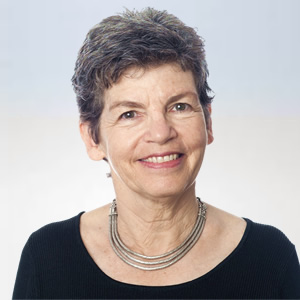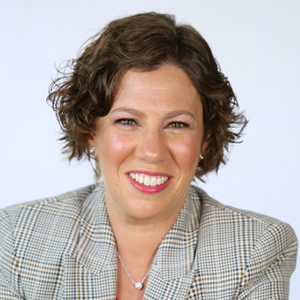Capital Campaigns 101: How to Train Your Entire Team
Capital campaigns transform organizations – often from top to bottom. And it’s all too easy to get so swept up in the work of fundraising that no one develops a plan for training the staff and volunteers.
But these are all-hands-on-deck undertakings! Everyone at your organization will need to understand the campaign and why it’s so important for your mission. Many members of your team will need to take on important tasks for the first time, like prospect research, managing complex outreach projects, asking for major gifts, and securing new sponsorships.
Training is critical for the success of a capital campaign, and it ensures your staff and volunteers will learn valuable skills to carry forward into the future.
In this post, you’ll learn who needs to be trained, when they need to be trained, and what they need to learn.
Understanding the Larger Context of Capital Campaigns
Capital campaigns are unlike other, more frequent fundraising campaigns you might conduct for your nonprofit. Their unique characteristics will impact the scope and shape of your training process.
Remember these three ideas as you develop a training plan for your capital campaign:
- Most organizations only conduct a capital campaign every ten to twenty years. That means that very few staff and board members have likely ever been through a campaign from start to finish. They may have played small roles in pieces of campaigns with other organizations, but it’s safe to assume that they have only a limited understanding of capital campaign fundraising.
- Capital campaigns rely on gifts that are much larger than most organizations ask for in their regular annual fundraising. While some organizations have well-developed major gift programs and are comfortable asking for large gifts, most are not! This will need to be a central part of your training process for individuals who will be directly involved in fundraising during the campaign.
- In most organizations, the program staff is tangential to capital campaigns, while the development staff and board are much more actively involved. But since program staff members are often the front line of contact with the community the organization serves, training them is perhaps less obvious but still important.
The Standard Campaign Training Process
Most campaigns incorporate two basic training tracks into their planning process. They conduct training about the campaign for their board, and they conduct solicitation training for those people who will be asking for gifts.
Training Your Board
Your board should be trained early in the campaign process so they understand how a campaign works and what their roles and responsibilities will be. Board training sessions are often 2-3 hours long and can be conducted in person or virtually.
Board members should be trained to articulate the case for support in their own words. They should understand the phases and timing of the campaign. And they should be clear about the roles of the board as a whole and what will be expected of them as individuals serving on the board.
Training Your Fundraisers
Solicitation training should be a regular and ongoing part of any campaign. You might conduct an extensive training series with all the people who will be soliciting gifts during the campaign’s quiet phase, most likely including board members. But you should combine that with shorter brush-up sessions for solicitors before they ask for gifts.
Both of these trainings are important. But that’s not all the training you should do—look to other parts of your organization to ensure everyone is on the same page and ready to support the campaign as needed.
Training Your Organization’s Leaders
In addition to board training and solicitation training, you should train the executive team so that they understand how a campaign functions and can plan for the ways in which the campaign will affect their aspect of the organization.
The CFO, for example, should understand that campaign gifts are often pledged over several years and many of them are complex gifts that may involve securities, real property, and planned gifts. The CFO should know that during the campaign, they will have to find a way to reconcile the books and the campaign accounting. Making adjustments will be easier if the CFO understands how campaigns work, so early training is essential.
Training Your Program Staff
Often overlooked in campaigns is the training of the program staff. Those people often have front-line contact with the public, so it’s very important that they know that the organization is in a campaign and what it is about.
Program staff should know what the campaign is raising money for. They should understand how the results of the campaign will make a difference in the way the organization carries out its services.
Program staff should know what to say if someone asks them about the campaign. The receptionist, for example, shouldn’t be caught off guard if someone walks in and asks how they might make a campaign gift. And people who carry out the work should be able to talk comfortably about the coming improvements. Those small conversations with people in the course of daily service add up and create a sense of enthusiasm and excitement.
But if the program staff isn’t informed they might feel poorly prepared to answer questions and left out of the brewing campaign excitement.
Key Takeaways
As you begin your campaign, outline a training program that covers the entire organization. By all means, make sure your board and solicitors are well-trained—but don’t stop there. Develop a plan that will prepare your executive and program staff for the campaign too.
When everyone understands the campaign’s purpose, its impact, and how their role fits into its success, you’ll set your organization up for a successful campaign that will energize the community and transform how you work.
Capital Campaign Readiness Assessment
Is your organization ready for a capital campaign? This simple assessment tool will help you find out. You’ll assess six key areas of your organization. Take this free assessment now and find out if you’re truly ready for a campaign.
About the Authors


Amy Eisenstein, ACFRE, and Andrea Kihlstedt are co-founders of the Capital Campaign Toolkit, a virtual support system for nonprofit leaders running successful campaigns. The Toolkit provides all the tools, templates, and guidance you need — without breaking the bank.


